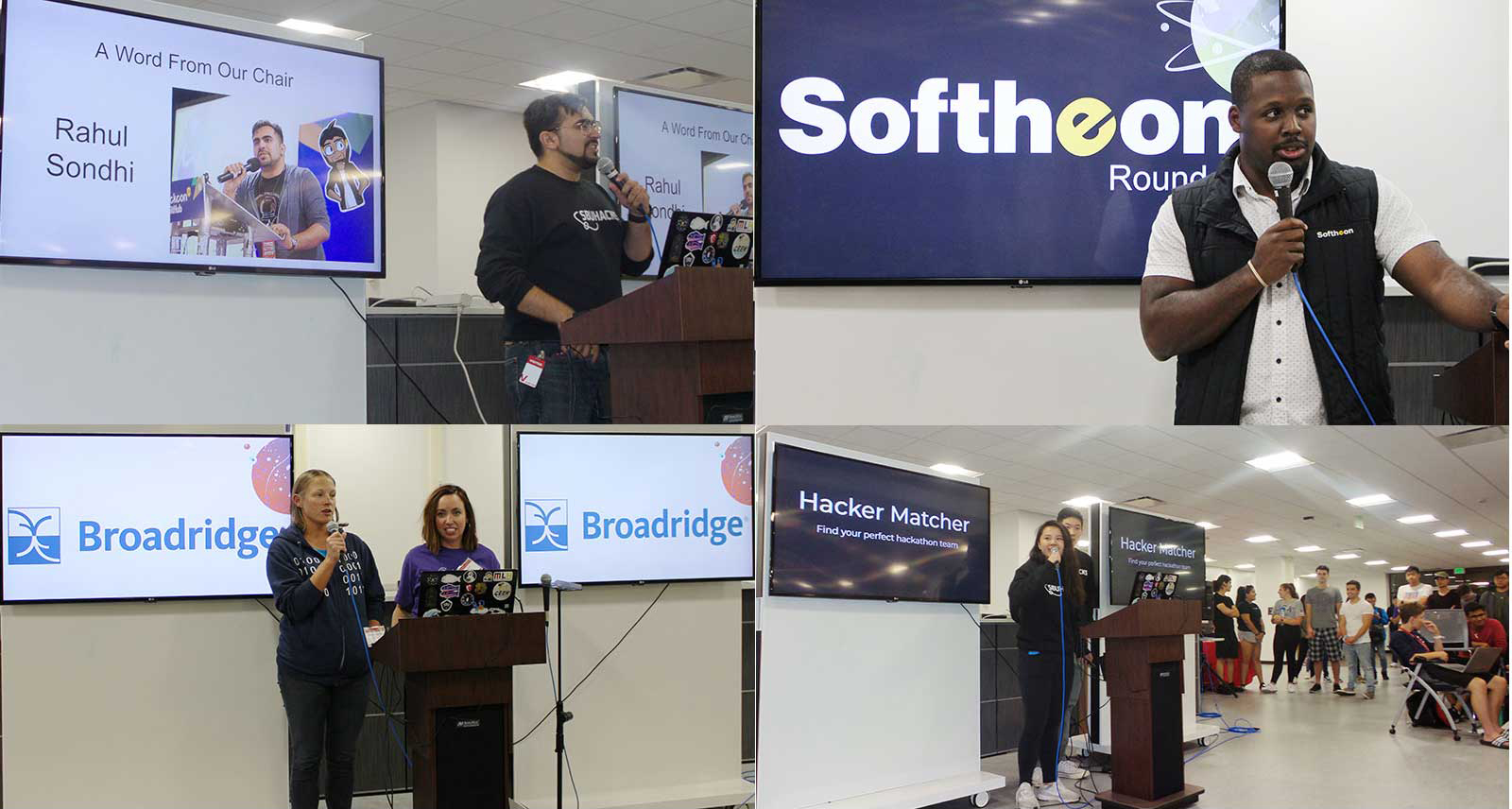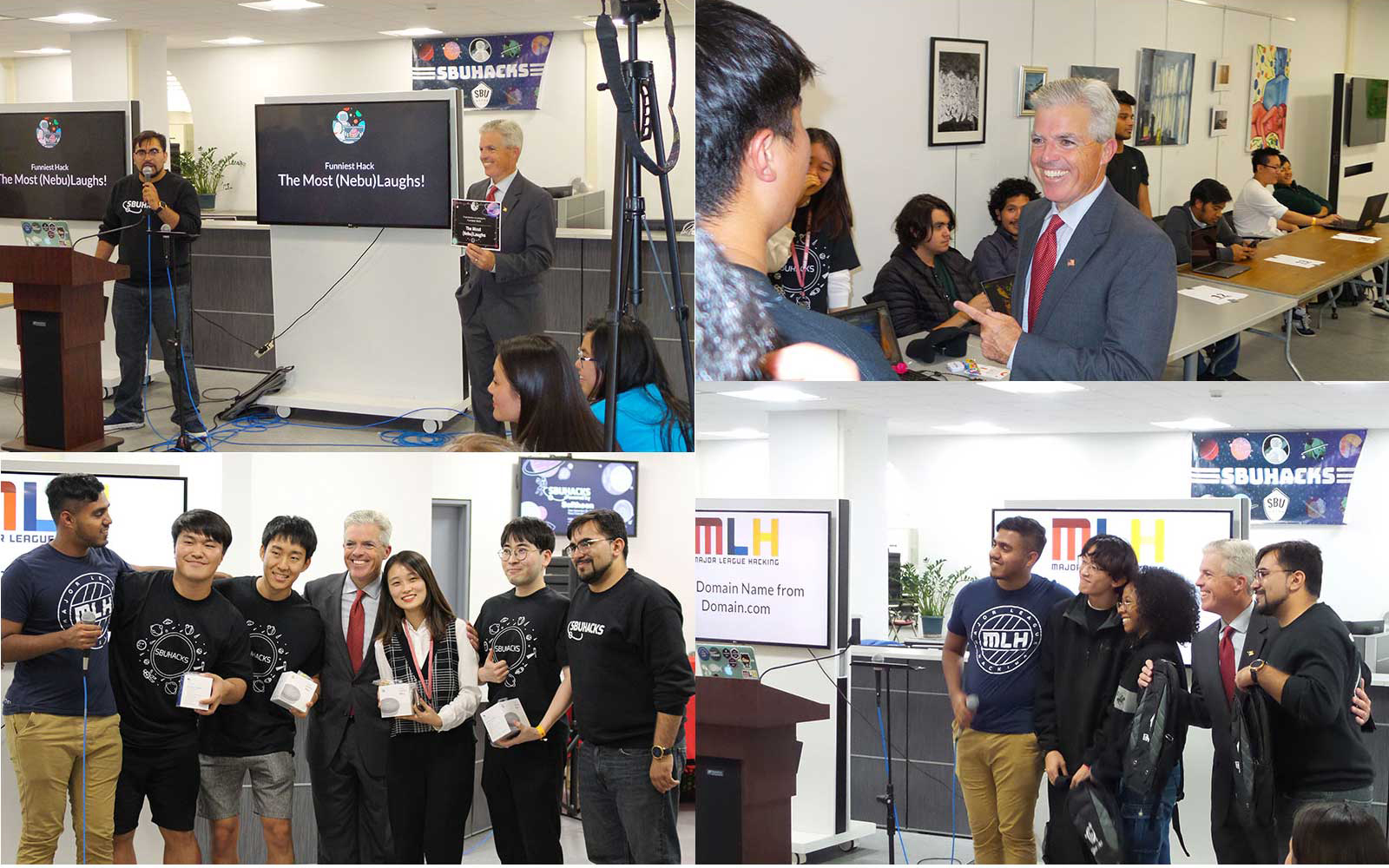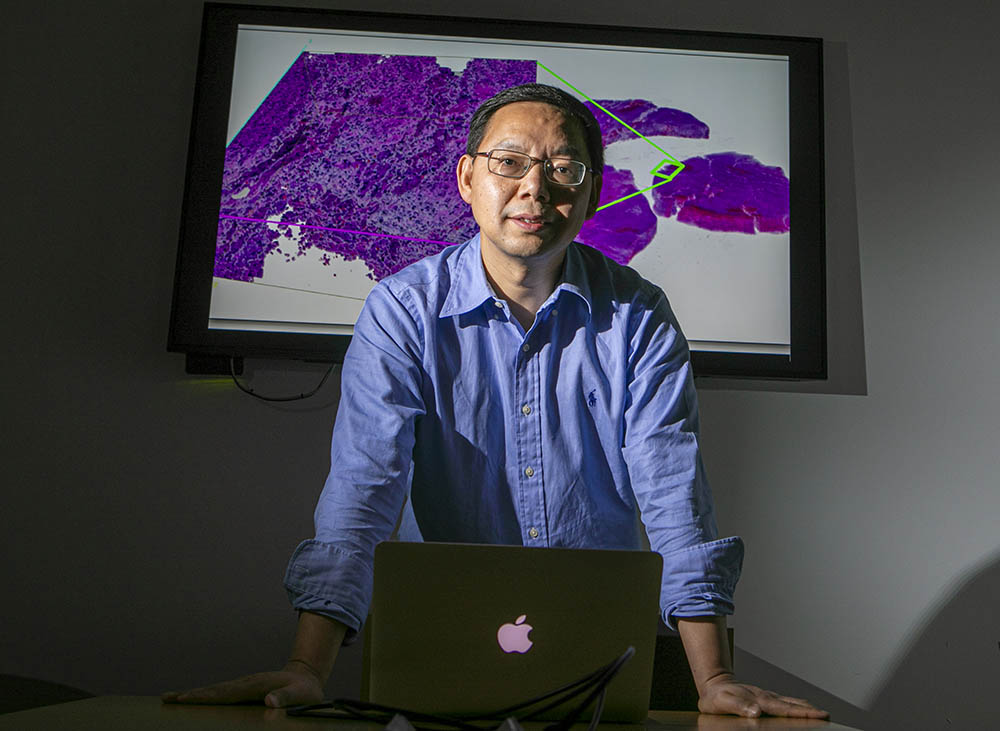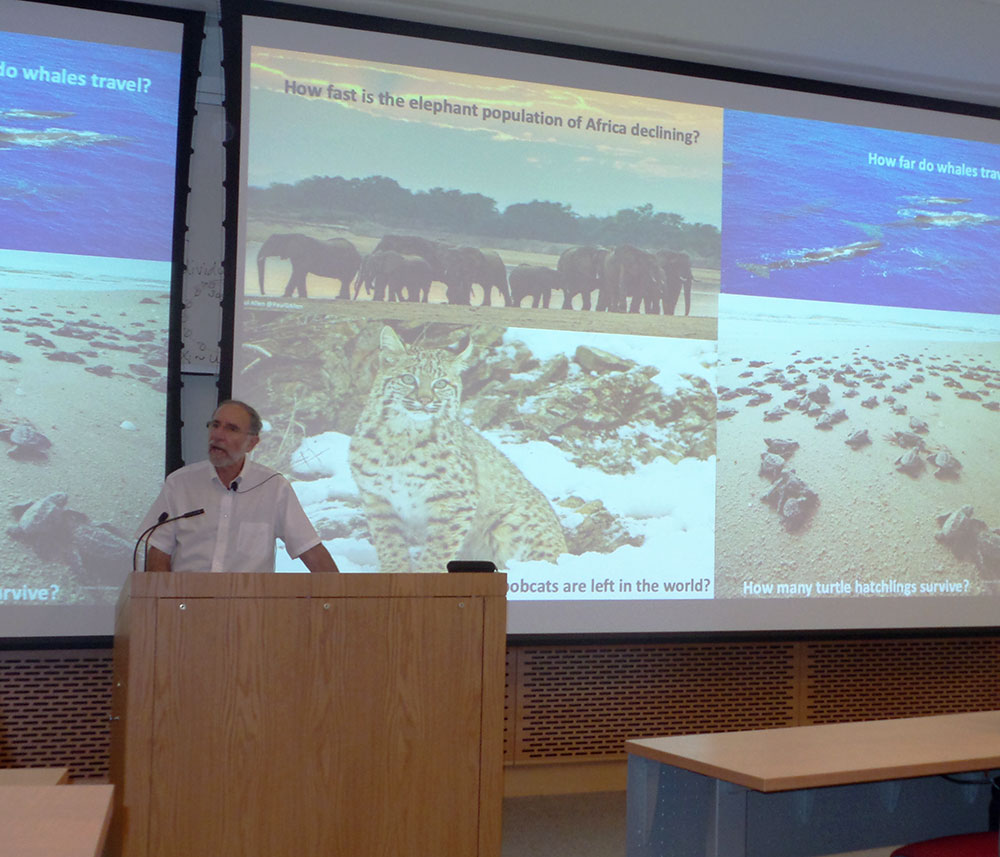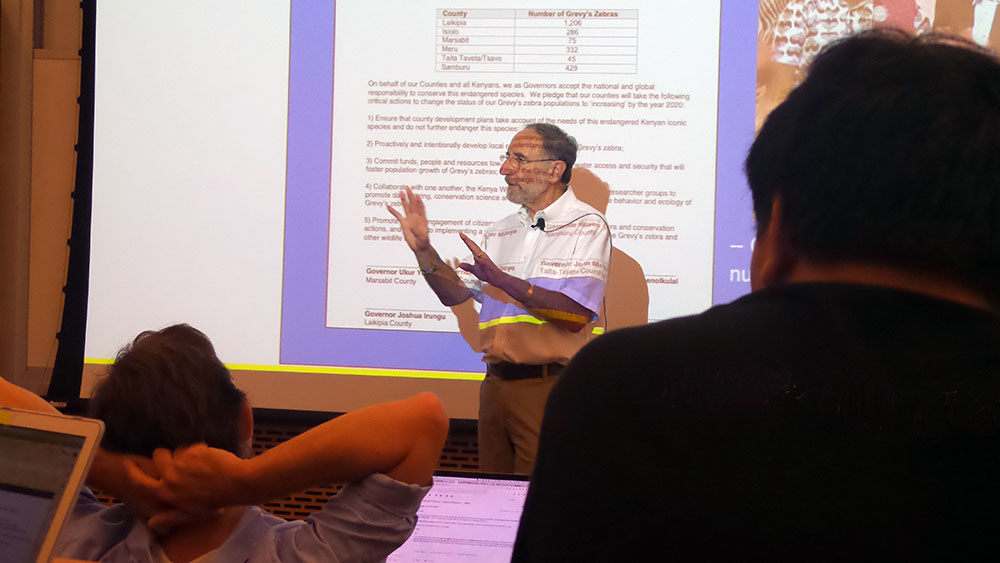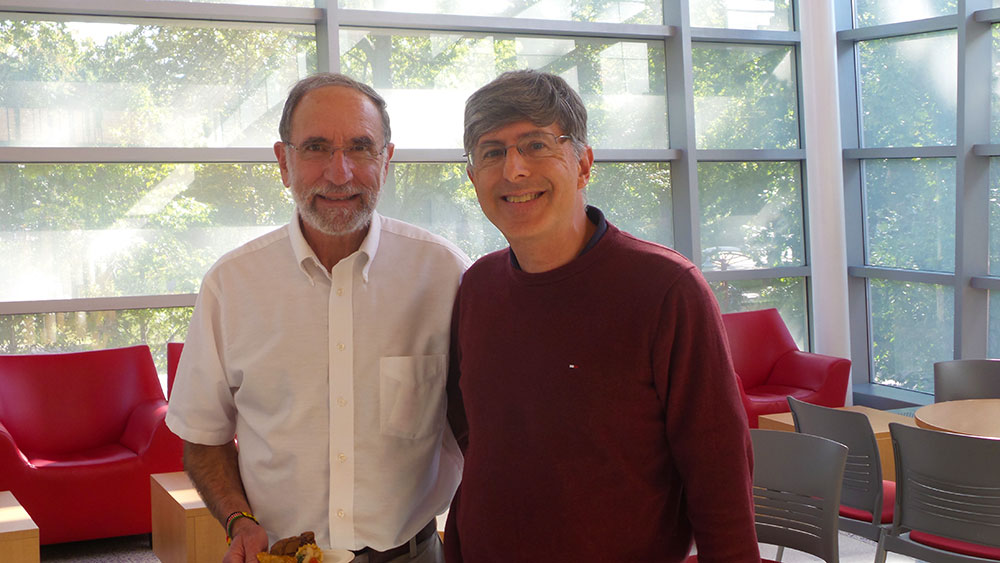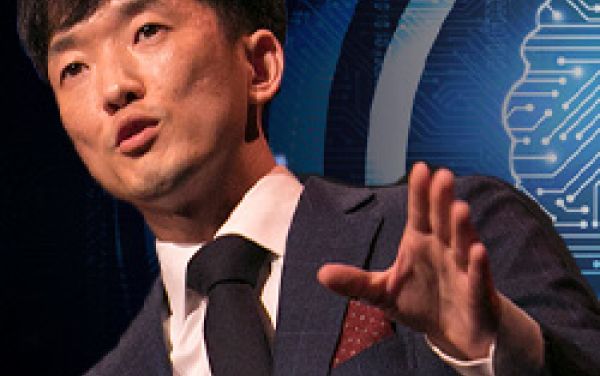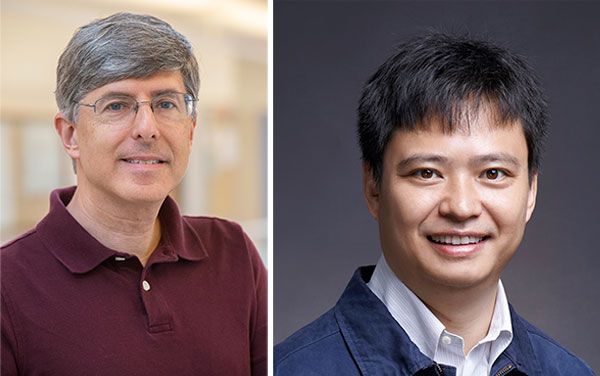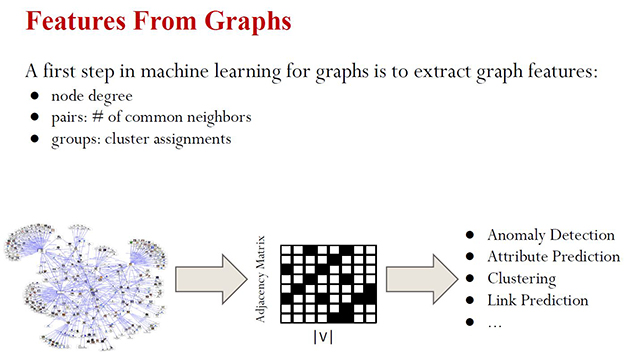On Friday, September 20th through Saturday the 21st, the 2019 SBUHacks 24-hour hackathon event took place in the Frank Melville Jr., Memorial Library. With more than 375 attendees, the hackathon built on the success of last year’s debut event. Students came from across the United States (including Chicago, California and Boston) and there were even students visiting from other countries such as Canada, Egypt and India!
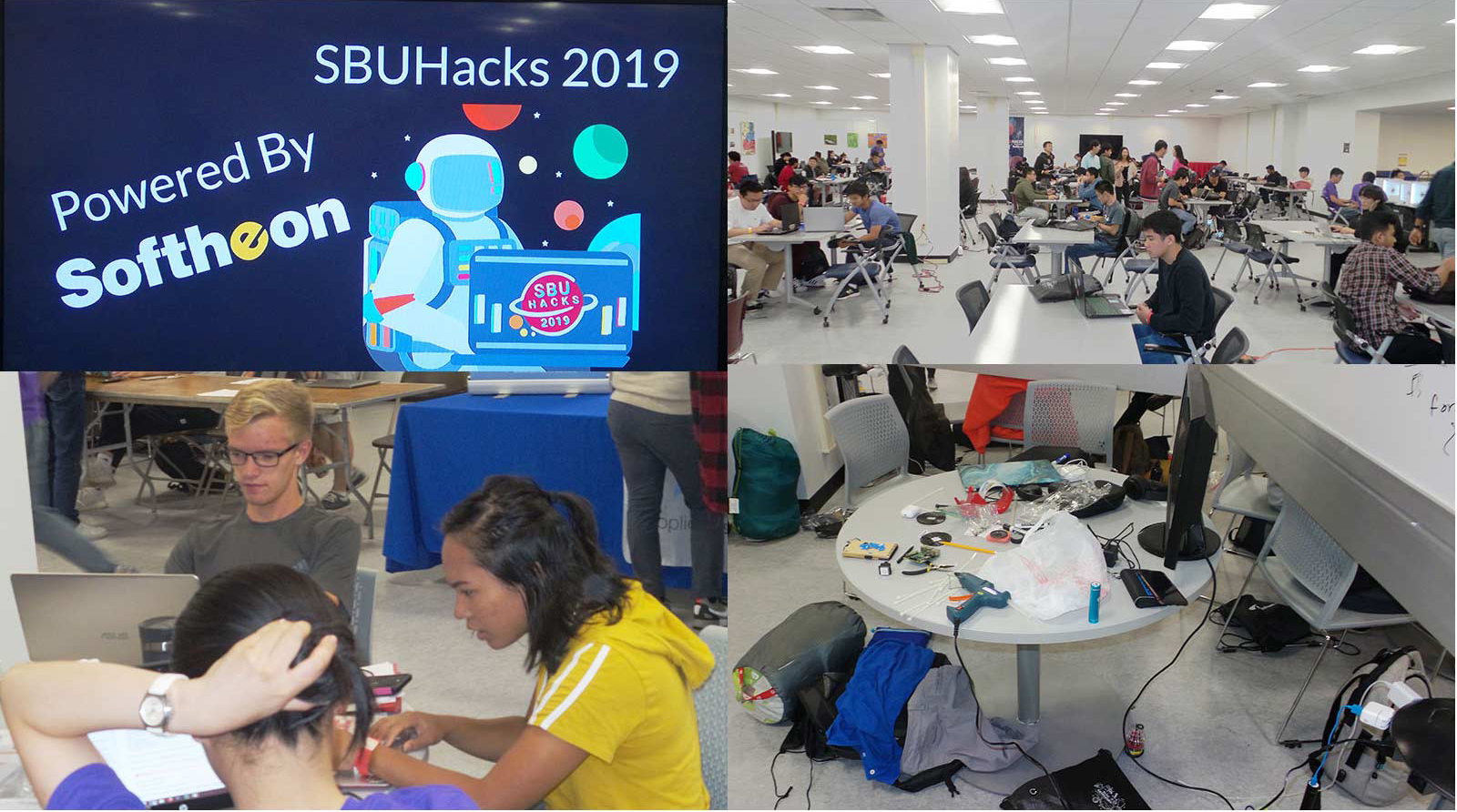
spotlightimage
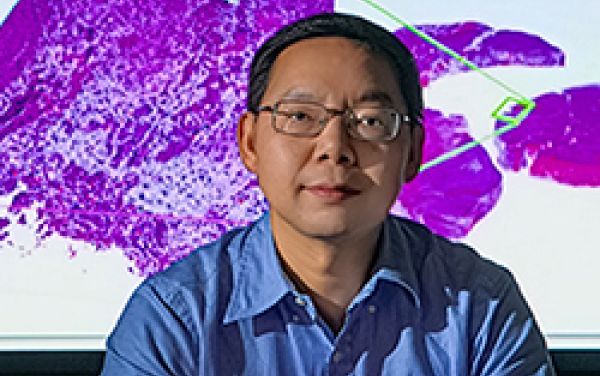
Spotlight Link
A $1.14 million grant from the National Cancer Institute (NCI) to research 3D computational pathology has been awarded to a team led by Fusheng Wang, associate professor in the Departments of Biomedical Informatics and Computer Science and an affiliated faculty member of the Institute for AI-Driven Discovery and Innovation.
The research aims to revolutionize digital pathology from 2D to 3D imagery, which would improve the efficiency and accuracy of clinical diagnosis, particularly in the context of cancer.
On September 20, 2019, Daniel Rubenstein, Class of 1877 Professor of Zoology, EEB; Director, Program in Environmental Studies; Behavioral Ecology and Conservation at Princeton University, kicked off our 2019/2020 Shutterstock Computer Science Distinguished Lecture Series (DLS). Rubenstein’s talk, “AI for Conservation: AI and Humans Combating Extinction Together" was delivered in NCS, Room 120 and was followed by a Q&A session and a brief reception.
A brief summary of quotes from Rubenstein’s talk follows:
Identifying the Source of Alzheimer’s Disease to Develop Effective Treatments
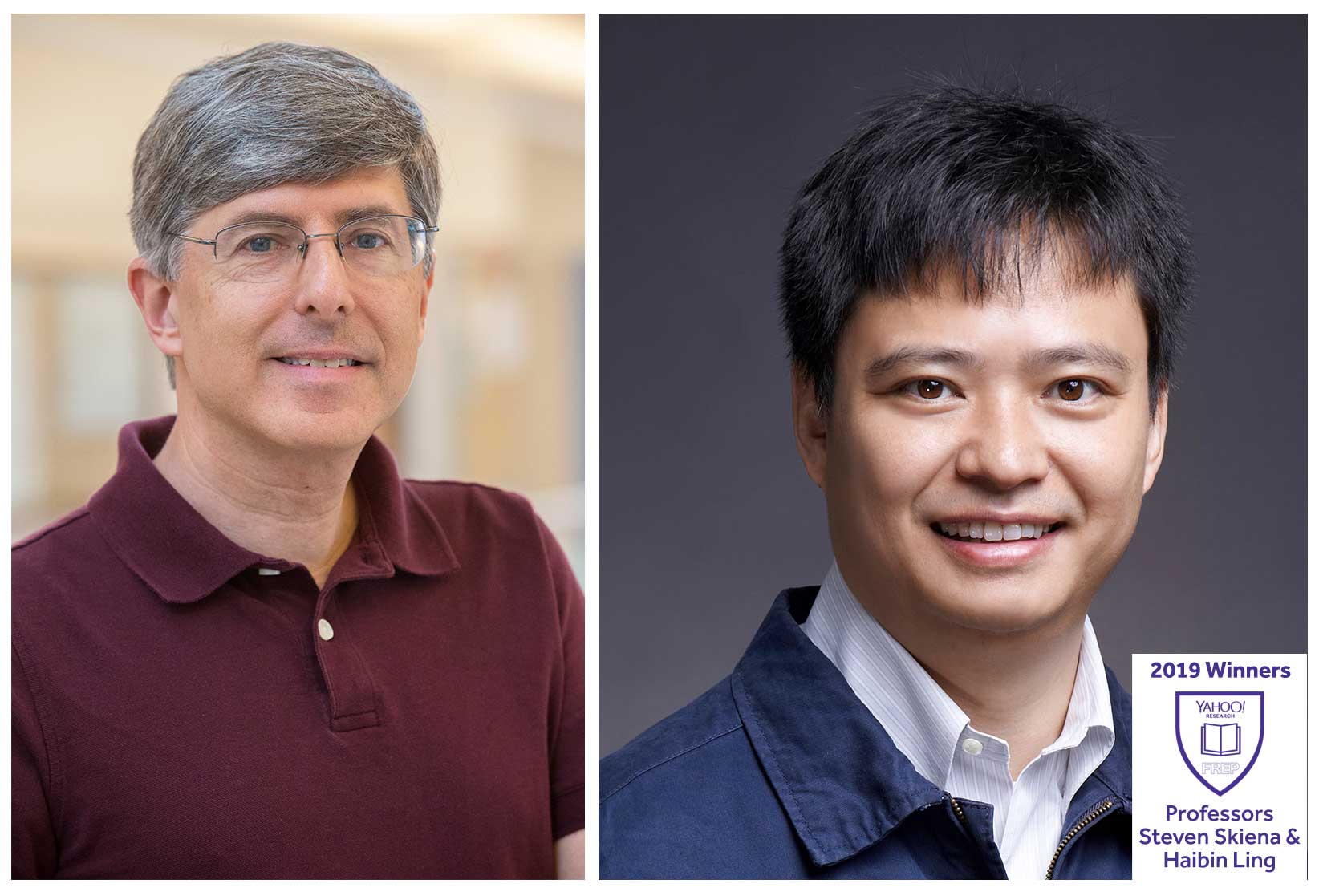 Research into developing better and faster embedding methods, and the creation of new models for detecting threats to visual privacy, have earned two Stony Brook AI Institute
Research into developing better and faster embedding methods, and the creation of new models for detecting threats to visual privacy, have earned two Stony Brook AI Institute



